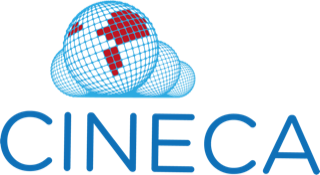This month’s blog was written by Melanie Courtot, metadata standards coordinator at EMBL-EBI and co-Work Package Lead of CINECA WP3 - Cohort Level Metadata Representation. This blog is the fourth in our Global Alliance for Genomics and Health (GA4GH) standards series, presenting an overview of how GA4GH standards are being developed and implemented by CINECA. In our April post about Passport, Mikael from CINECA WP2 explained the importance of controlled-access to protect sensitive data, federated data access in the cloud and how Passport enables researchers to authenticate - prove they are who they say they are.
Read MoreThis month’s blog was written by Mikael Linden, Senior application specialist at CSC - IT Center for Science, and co-Work Package Lead of CINECA WP2 - Interoperable Authentication and Authorisation Infrastructure. This blog is the third in our GA4GH standards series, presenting an overview of how GA4GH standards are being developed and implemented by CINECA. For the first blog in the series, giving a broad overview of how CINECA is facilitating federated data discovery, access and analysis, please see Dylan Spalding’s blog Implementation of GA4GH standards in CINECA.
Read MoreThis month’s blog was written by Lauren Fromont (CRG), a member of the EGA team at CRG and a member of CINECA WP1 - Federated Data Discovery and Querying. This blog is the second in our GA4GH standards series, presenting an overview of how GA4GH standards are being developed and implemented by CINECA.
Read MoreThis video describes a common framework for designing portable federated pipelines. The joint cohort genotyping pipeline is provided as a specific implementation example. The ability of the pipeline to run in different environments, accessing the data via different protocols, and applying the appropriate normalisations is demonstrated.
Read MoreThis month’s blog was written by Dylan Spalding (EMBL-EBI), Coordinator of the European Genome-phenome Archive and co-WPL of CINECA WP4 - Federated Joint Cohort Analysis. This blog is the first in our new series, presenting an overview of GA4GH standards being developed and implemented by CINECA.
Read MoreThis video describes a community of practice for interoperable ontology building called the OBO Foundry, and highlights a number of well curated and maintained ontologies that are useful for annotating cohort data. The video is aimed at anyone interested in data standardization and/or the ontology approach (i.e. public, end users). No prerequisite knowledge is required, but viewers may also find our previous videos useful. This video is part of the CINECA online training series, where you can learn about concepts and tools relevant to federated analysis of cohort data.
Read MoreThis video describes how public health genomics has played a key role in international responses to the COVID-19 pandemic, and how data standards are being used to harmonize data across jurisdictions for Canadian COVID-19 surveillance and outbreak investigations. The video is aimed at anyone interested in data standardization and/or the ontology approach (i.e. public, end users). No prerequisite knowledge is required, but viewers may also find our previous videos useful. This video is part of the CINECA online training series, where you can learn about concepts and tools relevant to federated analysis of cohort data.
Read MoreThe CINECA project aims to develop a common infrastructure to support federated data analysis across national cohorts in Europe, Canada, and Africa. In this report, the progress made over the past four years is discussed, which involves the development of six modular workflows to quantify and normalize molecular traits, pre-process genotype data, and test for associations between molecular traits and genotypes. The approach improves on the previous state of the art by packaging software dependencies into Docker/Singularity containers, using the Nextflow language to orchestrate complex multi-step workflows, and using the HASE(1) framework to reduce the amount of data that needs to be transferred between cohorts. The project provides training materials and open access datasets to encourage adoption and demonstrates how the workflows can be used to perform federated analysis across multiple real cohorts located in Switzerland, Germany, the Netherlands, and Estonia.
https://doi.org/10.5281/zenodo.7464116









